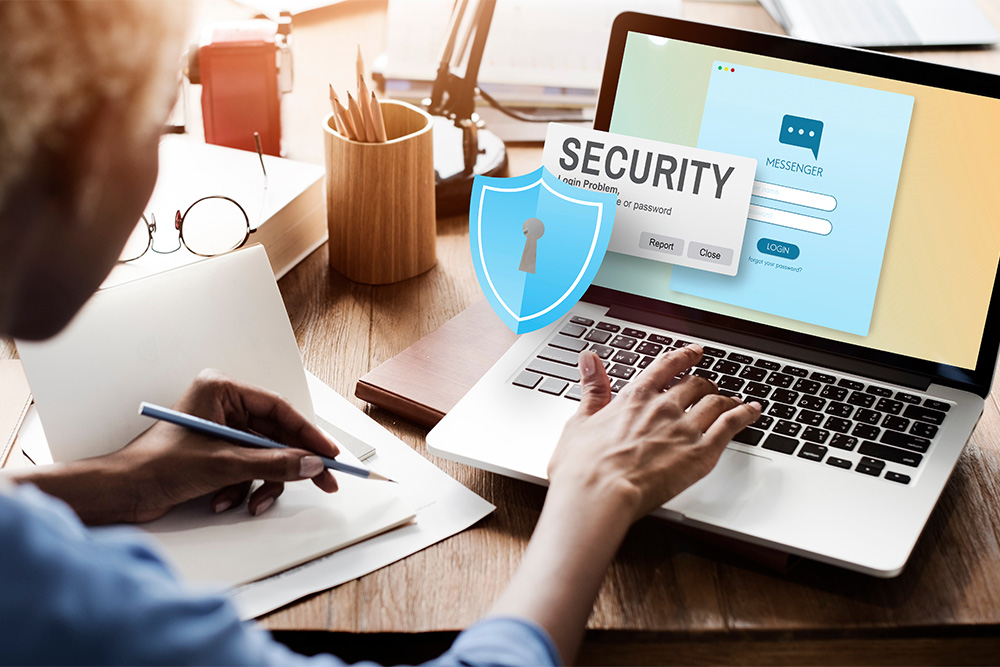How to Protect Your Privacy Online
In today’s digital age, protecting your privacy online has become more crucial than ever. With the increasing amount of personal information shared on the internet, individuals are more vulnerable to data breaches, identity theft, and surveillance.
This article provides comprehensive and practical tips to safeguard your privacy and maintain control over your personal data.
The Importance of Online Privacy
 Online privacy involves the protection of personal information that you share or generate through your activities on the internet.
Online privacy involves the protection of personal information that you share or generate through your activities on the internet.
This includes data such as your name, address, financial information, browsing history, and social interactions.
Protecting this information is vital to prevent misuse by malicious actors and to ensure your digital autonomy.
Preventing Identity Theft
Personal information can be used to steal your identity, leading to financial loss and reputational damage. By safeguarding your data, you reduce the risk of becoming a victim of identity theft.
Maintaining Confidentiality
Your private communications and activities should remain confidential. Protecting your privacy ensures that sensitive information is not exposed to unauthorized parties.
Controlling Personal Data
Retaining control over your personal data allows you to decide how it is used and shared, protecting you from intrusive marketing and data exploitation.
Use Strong and Unique Passwords
 One of the simplest yet most effective ways to protect your online privacy is by using strong, unique passwords for each of your accounts.
One of the simplest yet most effective ways to protect your online privacy is by using strong, unique passwords for each of your accounts.
Creating Strong Passwords
A strong password typically includes a mix of upper and lower case letters, numbers, and special characters. Avoid using easily guessable information like birthdays or common words.
Password Management Tools
Utilize password managers like LastPass, Dashlane, or 1Password to generate and store complex passwords securely. These tools can also alert you if any of your passwords have been compromised.
Two-Factor Authentication (2FA)
Enable two-factor authentication wherever possible. This adds an extra layer of security by requiring a second form of verification, such as a text message code or an authentication app.
Be Cautious with Personal Information
Limiting the amount of personal information you share online can significantly reduce your risk of privacy breaches.
Social Media Privacy Settings
Adjust your privacy settings on social media platforms to control who can see your posts and personal information. Avoid sharing sensitive details like your phone number or address publicly.
Be Selective About Sharing
Think twice before sharing personal information on websites, forums, or social media. Only provide the necessary information and be wary of requests for excessive data.
Anonymous Browsing
Use privacy-focused browsers like Tor or Brave to enhance your anonymity online. These browsers offer features that block trackers and protect your identity.
Secure Your Devices and Networks
Ensuring that your devices and internet connections are secure is another essential step in protecting your online privacy.
Device Security
Keep your devices updated with the latest security patches and software updates. Use antivirus and anti-malware programs to protect against malicious software.
Encrypted Connections
Use a Virtual Private Network (VPN) to encrypt your internet connection and protect your data from being intercepted by hackers. VPNs like NordVPN, ExpressVPN, or CyberGhost are reliable options.
Public Wi-Fi Precautions
Avoid accessing sensitive information, such as banking details, over public Wi-Fi networks. If necessary, use a VPN to secure your connection on public networks.
Be Wary of Phishing and Scams
Phishing and online scams are common tactics used by cybercriminals to steal personal information. Being vigilant can help you avoid falling victim to these schemes.
Recognize Phishing Emails
Be cautious of emails that request personal information or contain suspicious links. Look for signs of phishing, such as misspellings, generic greetings, and unexpected requests.
Verify the Source
If you receive an email or message from an unknown sender, verify its authenticity before clicking on any links or providing information. Contact the organization directly using a verified contact method.
Use Security Features
Many email providers and browsers have built-in security features that can help detect and block phishing attempts. Ensure these features are enabled and regularly updated.
Regularly Review Privacy Policies and Permissions
Understanding how your data is used and shared by the services you use is crucial for maintaining your privacy.
Privacy Policies
Take the time to read and understand the privacy policies of websites and apps before using them. Pay attention to how your data is collected, used, and shared.
App Permissions: Review the permissions requested by apps on your devices. Only grant permissions that are necessary for the app to function. Regularly review and revoke permissions that are not essential.
Data Minimization: Opt for services that follow data minimization principles, collecting only the data necessary for their operation. This reduces the risk of excessive data exposure.
Conclusion
Protecting your online privacy requires a proactive and comprehensive approach. By using strong and unique passwords, being cautious with personal information, securing your devices and networks, staying vigilant against phishing and scams, and regularly reviewing privacy policies and permissions, you can significantly enhance your online security. These essential tips will help you maintain control over your personal data and safeguard your digital presence.
References
- Electronic Frontier Foundation: Privacy Tips
- National Cyber Security Centre: Password Guidance
- Mozilla: Secure Browsers
- Google: Security and Privacy Features
- Federal Trade Commission: How to Recognize and Avoid Phishing Scams
- Identity Theft Resource Center: Phishing and Vishing
- National Institute of Standards and Technology: Privacy Framework

























![[ℕ𝕖𝕧𝕖𝕣] 𝕊𝕖𝕝𝕝 𝕐𝕠𝕦𝕣 𝔹𝕚𝕥𝕔𝕠𝕚𝕟 - And Now What.... Pray To The God Of Hopium?](https://cdn.bulbapp.io/frontend/images/79e7827b-c644-4853-b048-a9601a8a8da7/1)


























![[LIVE] Engage2Earn: Save our PBS from Trump](https://cdn.bulbapp.io/frontend/images/c23a1a05-c831-4c66-a1d1-96b700ef0450/1)










